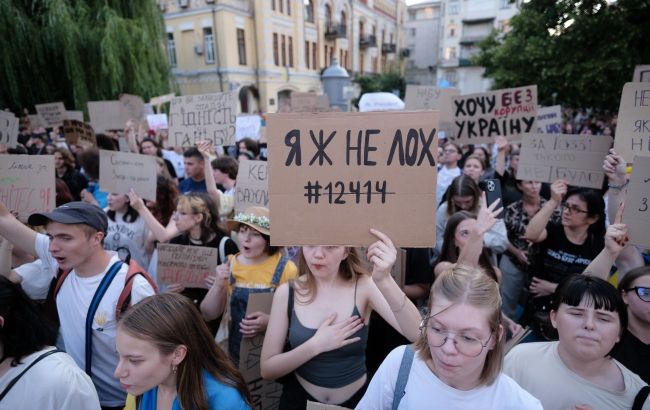Anti-corruption scandal could upend Ukraine’s EU path
 Photo: Protest by young people in Kyiv against the decision to abolish the independence of NABU and SAPO (Vitalii Nosach, RBC-Ukraine)
Photo: Protest by young people in Kyiv against the decision to abolish the independence of NABU and SAPO (Vitalii Nosach, RBC-Ukraine)
The scandal surrounding attempts to abolish the independence of anti-corruption bodies has changed Europe's attitude toward the Ukrainian government. Relations will not be the same as before, according to RBC-Ukraine's article.
Throughout the three and a half years of Russia's full-scale invasion of Ukraine, the European Union essentially adhered to an unspoken moratorium on criticism of Ukraine. This was for a number of reasons: not to give anti-Ukrainian forces at home any unnecessary leverage, not to undermine Western unity in support of Ukraine, to prioritize victory in the war, and so on.
Moreover, as RBC-Ukraine's interlocutors in Kyiv and Brussels said, this moratorium applied, in particular, to criticism behind closed doors.
"The West has long turned a blind eye to reform issues. This crisis would've happened sooner or later. But now, it's definitely accelerating," says one of RBC-Ukraine's interlocutors, commenting on future relations with Europe.
They will not be the same as before — most interlocutors in the government and among European diplomats agree on this.
What will change
In particular, we should expect less flexibility from Europe when discussing the various benchmarks that Ukraine must meet in order to receive the next tranche of funding. The process of Ukrainian reforms will be monitored much more closely. "Everyone knows Europe won't ease off now," says a government source.
However, if today's vote is successful, it will be possible to avoid immediate harsh consequences — the termination of financial assistance. In particular, the process of receiving the next tranche of funding from frozen Russian assets is set to begin in early August, and if the situation with NABU/SAPO can be more or less normalized by July 31, then that is what will happen.
Financial assistance
As for the high-profile story of Ukraine's failure to receive €1.5 billion under the Ukraine Facility program, according to an informed source at RBC-Ukraine, this program has always worked on the following principle: Ukraine received a percentage of the planned amount corresponding to the percentage of the target indicators it had achieved.
Another thing, explains the interlocutor, is that until the latest scandal, there was an agreement that Europe would give Ukraine time until September without revealing its conclusion about what had been fulfilled and what had not. Now, however, the agreement has been terminated for obvious reasons.
However, the money not received under the Ukraine Facility can be obtained this year, but for this, it will be necessary to speed up various reforms in a wide range of areas.
"There's still a lot ahead, and it's not just about the Economic Security Bureau of Ukraine (according to RBC-Ukraine, Kyiv might be given until September to resolve this issue - ed.), the 'Lozovyi amendments' (amendments to the Criminal Procedure Code of Ukraine that came into force on March 16, 2018 - ed.) will also have to be scrapped, and a whole bunch of other things," says one of the Servant of the People leaders. And most of the tasks cannot be accomplished without a properly functioning Rada.
On July 22, the Verkhovna Rada passed a law abolishing the independence of NABU and SAPO. The law was signed by President Volodymyr Zelenskyy on the same day.
The repeal sparked protests in Kyiv and statements from Western partners. A few days later, Zelenskyy said he had heard the people and submitted a draft law on the independence of anti-corruption bodies. It will be considered today, July 31.

